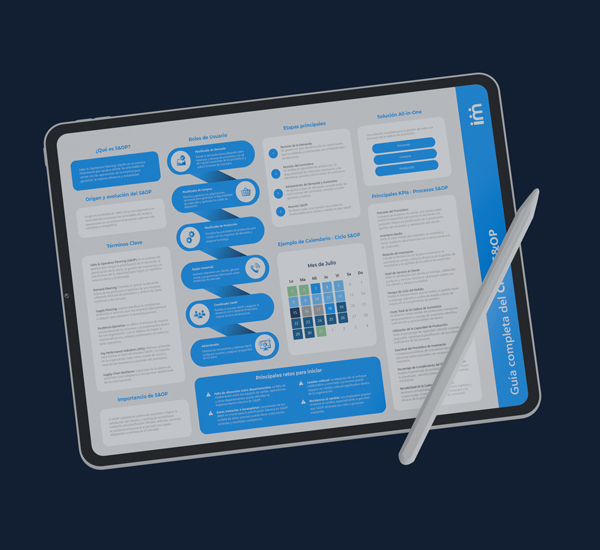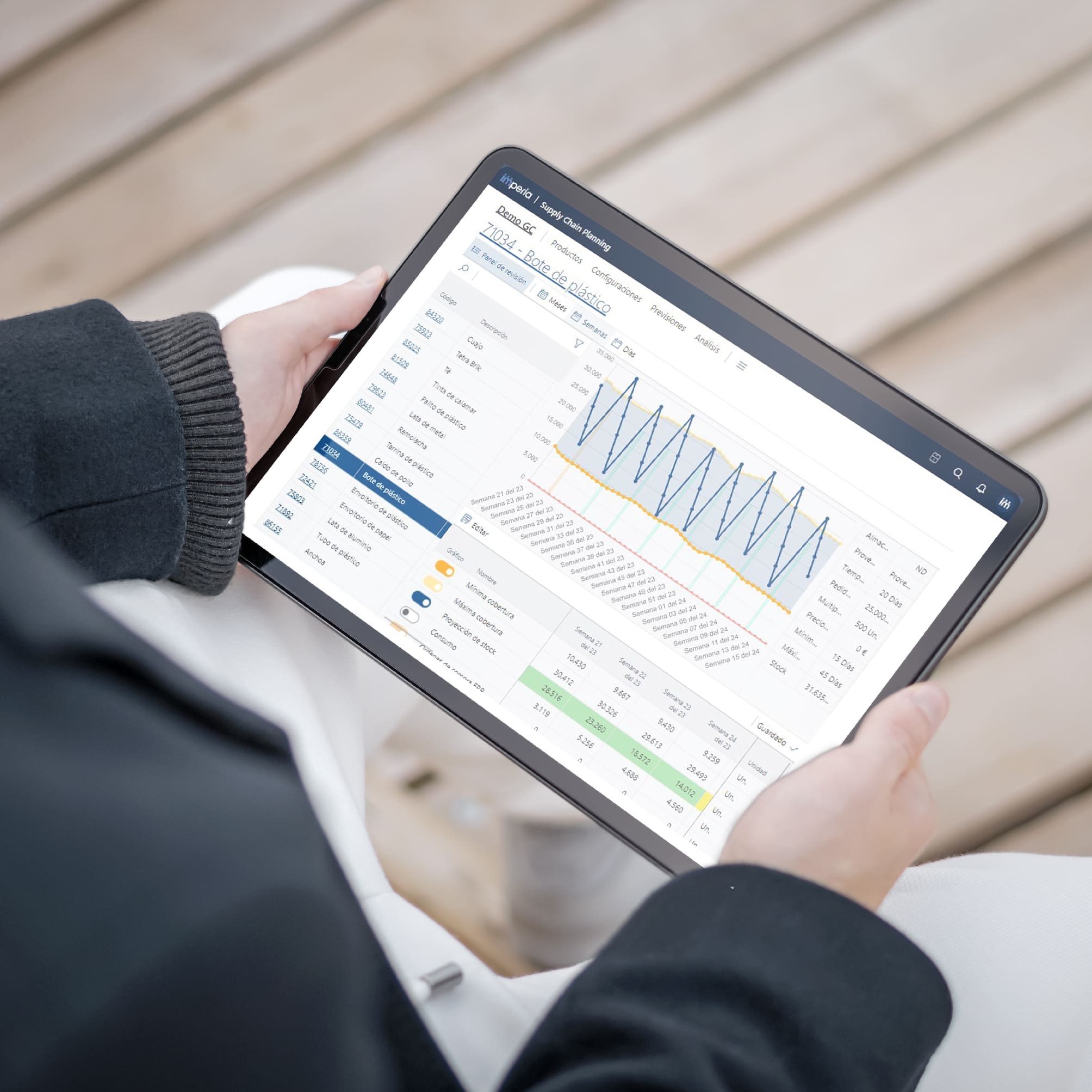To achieve operational excellence, companies must make sound strategic decisions. And for these strategies to be successful, they must be based on reliable and relevant information. This is where the concepts of master data and Master Data Management (MDM) come into play. In today’s article, we will delve into these terms, explore their importance in the supply chain, the benefits they bring to companies, and the technological tools that can be used to improve their management. Let’s get started!
What is Master Data?
Master data refers to the central and essential information for a company’s operations. This data is necessary for effective management of products, customers, suppliers, and other key business elements. Master data includes details such as product descriptions, SKUs, prices, technical specifications, customer information like names, addresses, purchase history, and supplier data such as capabilities, delivery times, and purchasing conditions. The accuracy and consistency of this data are crucial to the operational and strategic success of any organization.

What does MDM (Master Data Management) mean?
Master Data Management (MDM) is the process of creating, maintaining, and managing master data. This approach ensures that data is accurate, consistent, and accessible across the entire organization. Master data management is not just about storing information; it’s about integrating and keeping it up to date, allowing companies to make informed decisions based on reliable data. MDM involves the implementation of policies, procedures, and technological tools that guarantee the quality and governance of master data.
Importance of Master Data Management (MDM) in the Supply Chain
Master Data Management is especially important in the supply chain. In an environment where accuracy and speed are essential, having high-quality master data enables companies to optimize their operations, reduce costs, and improve customer satisfaction. MDM ensures that all departments and systems within a company use the same precise and up-to-date information, facilitating collaboration and operational efficiency . Moreover, proper master data management helps companies comply with industry regulations and standards, which is critical in highly regulated sectors.
Benefits of Efficient Master Data Management
When a company implements efficient Master Data Management, it gains various benefits reflected in the outcome of its operations. Key benefits of good MDM include consistent and accurate information, better decision-making, improved operational efficiency, and easier compliance with industry regulations and standards.
Information Accuracy and Consistency
One of the main benefits of efficient master data management is the accuracy and consistency of information. Centralized and well-managed master data ensures that all departments and systems work with the same data, eliminating discrepancies, errors, and data silos. This is vital for supply chain planning and execution, as a single source of truth allows for more effective coordination and accurate decision-making.
Informed and Strategic Decision-Making
Master Data Management provides a solid foundation for informed and strategic decision-making. With accurate and up-to-date master data, executives can analyze trends, identify opportunities, and mitigate risks more effectively. This is especially important in demand planning, inventory management, and production optimization, where decisions must be based on reliable and relevant information.
Improved Operational Efficiency
Master data management also improves operational efficiency. By automating the update and maintenance of master data, companies can reduce manual effort and human errors, which in turn increases productivity and reduces operational costs. Additionally, the availability of accurate data allows for better planning and execution of operations, resulting in greater efficiency and less waste.
Regulatory Compliance and Industry Standards
Regulatory compliance is another critical aspect that benefits from efficient master data management. Companies must comply with various regulations and industry standards, and Master Data Management facilitates this compliance by ensuring that data is accurate, consistent, and easily accessible across the company. This not only helps avoid fines and penalties but also enhances the company’s reputation and relationship with regulators and business partners.

How a Planning Software Optimizes Master Data
Integrating technological tools into business processes, such as a Supply Chain Planning software , helps improve master data management. These solutions make it easy to integrate and consolidate data, automate its maintenance, make accurate forecasts based on collected data, and improve collaboration between the various departments involved in the company's activities.
Data Integration and Consolidation
A specialized demand planning software , purchasing, and production planning can transform how a company conducts its Master Data Management. One of the main advantages of these systems is their ability to integrate and consolidate data from different systems and departments. This provides a unified and complete view of the information, eliminating data silos and improving transparency throughout the organization.
Automated Maintenance Processes
Automating maintenance processes is another key benefit of using planning software for master data management. These systems can automate the update and maintenance of data, reducing manual workload and minimizing human errors. Automation ensures that master data is always up-to-date and accurate, which is essential for operational efficiency and informed decision-making.
Advanced Analytics and Forecasting
Advanced analytics and forecasting are essential features of planning software that optimize master data. These systems use data analysis techniques to identify patterns, trends, and improvement opportunities. The ability to predict demand, optimize inventories, and plan production more accurately allows companies to be more agile and competitive in a dynamic market environment.
Facilitating Interdepartmental Collaboration
Planning software also facilitates interdepartmental collaboration by ensuring that all departments have access to the same accurate and up-to-date information. This is crucial for the effective coordination of the supply chain, from demand planning to production and purchasing. Enhanced collaboration not only increases operational efficiency but also improves the company’s responsiveness to changes in demand or supply chain disruptions.

Strategies for Maintaining Master Data Accuracy
Maintaining master data accuracy is an ongoing challenge that requires a combination of effective strategies. A key strategy is implementing clear policies and procedures for data entry and updates. This includes defining data quality standards, training staff in best practices, and using technological tools to facilitate data validation and verification. Additionally, regular auditing of master data helps identify and correct errors, ensuring that information remains accurate and up-to-date over time.
Improve your efficiency with effective Master Data Management (MDM)
Master data management is essential for optimizing the supply chain. An efficient Master Data Management (MDM) approach ensures that data is accurate, consistent, and accessible across the organization, providing a solid foundation for strategic decision-making. Implementing specialized planning software can transform master data management, improving data integration, automation, analysis, and collaboration between departments. Ultimately, efficient master data management not only enhances operational efficiency but also provides a competitive edge in the market.
At Imperia, we offer a tool capable of optimizing companies' supply chains, allowing them to increase their efficiency and competitiveness. Moreover, our experts have extensive experience in identifying improvement opportunities and advising our clients on how to achieve operational excellence. If you want to learn more, don’t hesitate to request a free demo.

Enter your email and download the content
In supply chain management, identifying key elements that require special attention can make the difference between success and failure.





























































 Imperia_thumbnail.jpg)





















